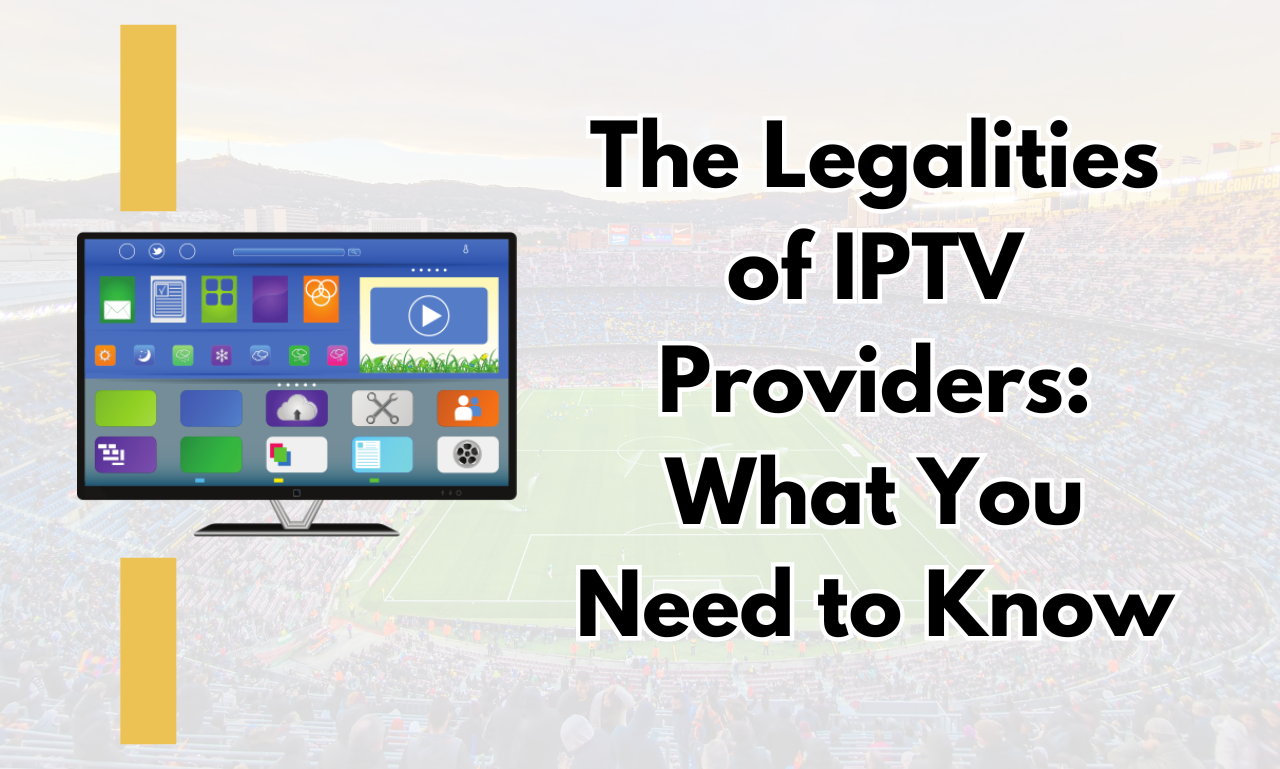In recent years, IPTV (Internet Protocol Television) has surged in popularity. It offers a vast array of channels and on-demand content over the internet. As more consumers turn to IPTV for their viewing needs, the question of legality arises. Are IPTV providers operating within the bounds of the law? This article delves into the legality of IPTV services, examining various factors that determine whether these services are legal or not.
Understanding IPTV
IPTV stands for Internet Protocol Television. It differs from traditional cable or satellite services by transmitting television content over internet networks. Users can stream live TV, on-demand shows, and movies using their internet connection. The convenience and variety IPTV offers have made it an attractive alternative to conventional TV services.
Legitimate IPTV Providers
Licensed Content Distribution
Licensed IPTV providers are those that have obtained the necessary permissions to distribute television content. These providers pay for the rights to broadcast channels and on-demand content, ensuring that they operate within legal frameworks. Examples include major streaming services like Hulu, Sling TV, and YouTube TV. These platforms have agreements with content creators and broadcasters, making their services legal and reliable.
Subscription-Based Models
Many legitimate IPTV services operate on a subscription basis. Users pay a monthly or yearly fee to access a curated selection of channels and content. The subscription fees are used to cover the costs of licensing agreements and maintaining the service. This model ensures that both the provider and the content creators are compensated fairly.
Illegitimate IPTV Providers
Unauthorized Content
Illegitimate IPTV providers offer access to a wide range of channels and content without proper licensing. These services often source their content illegally, infringing on the rights of content creators and broadcasters. While these services may seem attractive due to their low cost or even free access, they operate outside the law.
Piracy and Legal Consequences
Using unauthorized IPTV services can have serious legal consequences. Both the providers and the users can face legal action. Providers may be charged with copyright infringement, leading to hefty fines and potential imprisonment. Users, although less commonly targeted, can also face penalties for accessing pirated content.
Risk of Malware and Data Theft
Illegitimate IPTV services often come with additional risks. These platforms may be riddled with malware and pose a threat to user data. Unscrupulous providers can exploit their users by injecting harmful software or stealing personal information, further emphasizing the dangers of using unauthorized IPTV services.
Regulatory Bodies and Legal Frameworks
International Regulations
IPTV services are subject to various international regulations. Organizations such as the World Intellectual Property Organization (WIPO) work to protect the rights of content creators and ensure that intellectual property laws are upheld globally. Legitimate IPTV providers must comply with these regulations to operate legally.
Local Laws
Local laws also play a significant role in determining the legality of IPTV services. Different countries have varying legal requirements for content distribution. Providers must navigate these laws to ensure they are not infringing on local regulations. For instance, the Digital Millennium Copyright Act (DMCA) in the United States imposes strict penalties for copyright infringement.
How to Identify Legal IPTV Services
Check for Licensing Information
Legitimate IPTV providers are transparent about their licensing agreements. They often provide information on their website regarding the channels and content they are authorized to distribute. If a provider cannot produce such information, it is likely operating illegally.
Read User Reviews and Testimonials
User reviews and testimonials can provide insights into the legitimacy of an IPTV service. Reputable providers will have positive reviews and a history of satisfied customers. Conversely, providers with numerous complaints and negative feedback should be approached with caution.
Verify Payment Methods
Legal IPTV services typically offer secure and standard payment methods such as credit cards and PayPal. Suspicious payment requests, such as cryptocurrency or untraceable transfers, may indicate an illegitimate service.
Conclusion
The legality of IPTV providers hinges on their adherence to licensing and copyright laws. While legitimate services offer a safe and lawful way to access a broad range of content, unauthorized providers pose significant legal and security risks. Users should exercise caution and verify the legitimacy of an IPTV service before subscribing.
